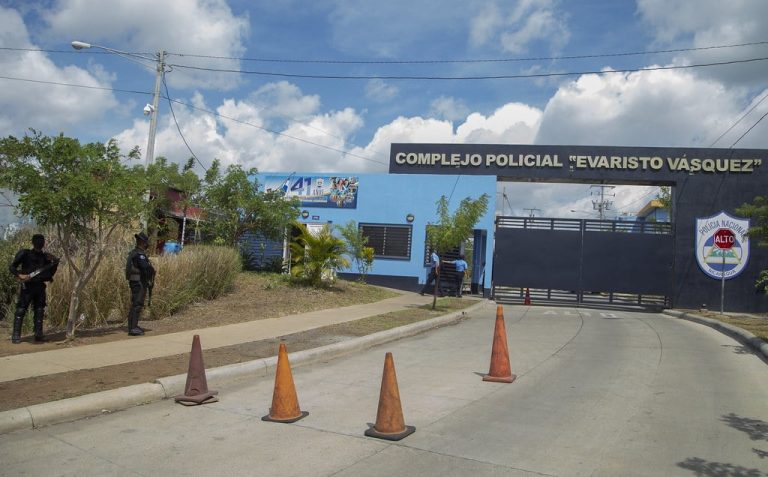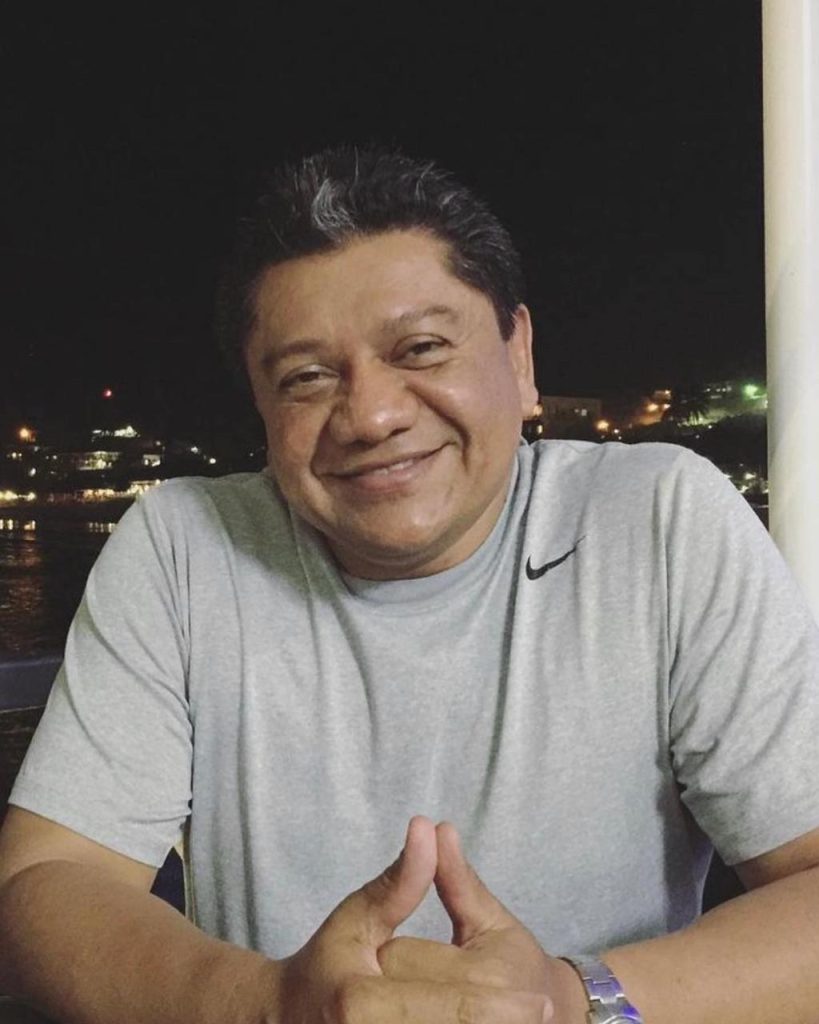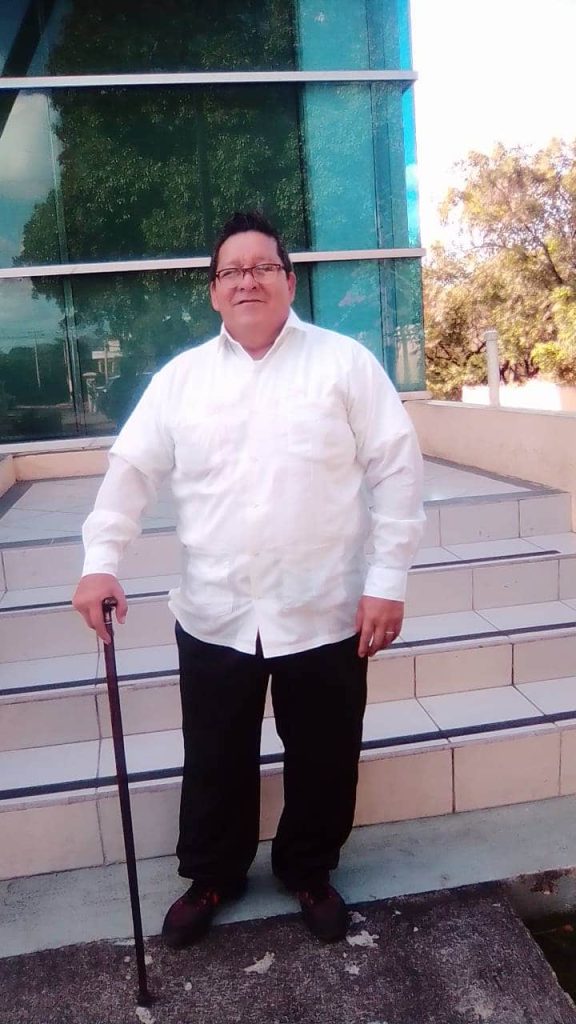8 de marzo 2022

Children of Exile: The Births “Sowing Hope” in the Camp of Nicaraguan Farmers

PUBLICIDAD 1M
PUBLICIDAD 4D
PUBLICIDAD 5D
Prisoners of conscience suffer serious physical and psychological deterioration and fear for their lives

Prisoners in El Chipote report that a typical meal might consist of 40 individual beans
During interrogations that have been constant throughout 283 days of confinement in El Chipote, police agents suggested to Walter Gómez, one of the political prisoners in the money laundering trial opened against the Violeta Barrios de Chamorro Foundation (FVBCh), that he “collaborate with the authorities” after warning him that something could happen to his family, according to his wife María Consuelo Céspedes.
Céspedes said that her husband, 55 years old and ex-financier of the FVBCh, has lost 50 pounds and suffers from skin problems (psoriasis). Along with the physical deterioration, she assures that she suffers from “anxious depressive disorder” and fears greater psychological damages, which were evident to her during the trial, which was activated on Thursday, March 3, by the judicial machinery of the Government party.
In the first days of confinement, officers made Gómez believe that his wife and daughter were being held in the prison at the same time as him, showing him a photograph of a red family vehicle which they said had been impounded in order to convince him, lamented his wife.

Walter Gómez, former financier of the FVBCh, political prisoner of the regime. Photo/Courtesy
In a second attempt, they threatened to kidnap his son, and during interrogations, he was told that his sentence would be thirty years and he would not be able to see his son grow up. However, Gómez remained firm, even though the after-effects of torture make him look weak, hunched over, and with certain nervous tics, like moving back and forth in a way similar to a rocking chair motion.
“I see that his eyes are red, and it’s because he has been in a cell in total darkness. He goes to the hearings now, and there are a lot of lights, and the light bothers him. That is why he is rubbing his eyes all the time,” says Céspedes. These damages, plus the physical strain, make this woman fear the worst, and she asks for her husband's immediate release or at least a change of precautionary measure to house arrest.
The relatives of political prisoners have remained anxious since last february 11, when retired general Hugo Torres, a hero of the struggle against Somoza, died after the regime of Daniel Ortega turned him into a political prisoner last year, following the raids that resulted in more than 40 detainees.
According to a report of the mechanism for the recognition of imprisoned political persons, dated January 31, 2022, there are 177 prisoners of conscience in the country, among them more than 40 detained before the elections and others repressed for their participation in the civic protest against the dictatorship.
Céspedes says she is concerned. The Prosecutor's Office accuses Gómez and Marcos Fletes for alleged abusive management, ideological falsehood, appropriation, undue retention and asset laundering as it did with former presidential candidate Cristiana Chamorro Barrios. She is the last of seven aspiring candidates to be sentenced in a trial that may last all of next week, and with which the regime would have fulfilled its plan to reelect itself without electoral competition and inhibit the future of the main political, economic and social leaderships of the country.
Pablo Fletes is a well-known sportswriter, specializing in boxing coverage. The biggest blow he has received in his life has been the imprisonment of his brother Marcos Fletes -the other financier of the FVBCh- about whom he expresses concern also because of his physical deterioration, his evident weight loss, which reveals poor nutrition, a mortal sin for someone suffering from diabetes. Last time he saw his brother, he saw that his hands were purple.
Political prisoner Fletes has three children: a 15 year old son, a 12 year old daughter and a two year old daughter, whom he always asks about every time he can see his relatives. However, Marcos’ relatives feel overtaken by sadness or indignation every time they are allowed to see him.
“I was sad when I saw him. They even took him handcuffed to the courtroom, with plastic ties, and there is no need to do that, because there is a whole police deployment that is activated as soon as they come out. Two policemen, one on each side of the prisoner, are positioned to prevent him from having contact with the prisoner next to him when he is on trial. To me, these measures are exaggerated”, he lamented.
Judge Luden Martin Quiroz, of the Ninth District Trial Court of Managua, is in charge of the FVBCh case. The judge decided to restart the trial under the fundamental criticism that it is impossible to prove the crime of money laundering when the origin of the funds is legal as the donors have testified.
The Public Prosecutor's Office accuses Chamorro Barrios, her brother Pedro Joaquín - former president of the FVBCh -, the aforementioned financiers and the driver Pedro Vásquez in a case in which they intend to prove that funds destined to strengthen the media were diverted to destabilize the Ortega regime, which adds to the official narrative that the dictatorship was the victim of a coup d'état.
Quiroz is part of the machinery that has ensured the convictions of political prisoners, made up of 15 officials, including police, prosecutors and judges, who carry out the orders issued from El Carmen, the neighborhood where the Ortega-Murillo family residence is located.
The other legal challenge raised by lawyers to the judicial farce of the FVBCh is procedural. The judge restarted the political process two months after the expiration of the maximum term for sentencing, which in local legislation is six months from the preliminary hearing.
The relatives of the political prisoners interviewed have mixed feelings about this week's hearings, as the defense lawyers are already waiting for a ruling. While Cespedes assures that God willing her husband will never set foot in La Modelo (the main prison of the Nicaraguan penitentiary system), Fletes feels disheartened.
“I ask them to have humanity; that they respect his human rights, that they take him out of that prison and transfer him to a more open facility where he can have access to his wife, to house arrest. I feel helpless in the face of all this apparatus, everything is already tied up (the sentence). He is not a politician,” he insisted.
The prosecution's accusation rests on 26 testimonies of police officers and three government officials, among them the director of associations, explained sources linked to the case. For the relatives of the political prisoners, the imprisonment of their loved ones is an agony for them as well.
Norma Maribel Vega Ríos, the wife of driver Pedro Vásquez Cortedano, is worried. Her 60-year-old husband suffers from dizziness and has lost 40 pounds in 260 days of confinement in El Chipote. In recent days, she says, he has suffered from high blood pressure.
Vásquez is a driver for former presidential candidate Cristiana Chamorro Barrios, and is accused of being a necessary cooperator in the alleged crime of money laundering. He has six children. In the eighties, he stood out as a member of the Pablo Úbeda special troops, in the nineties he started working with the family of the former minister of the presidency Antonio Lacayo and Chamorro Barrios.

Pedro Vásquez, driver of Cristiana Chamorro Barrios, politically prosecuted by the regime. Photo/Courtesy
Doña Norma was shocked to see how pale he was, walking with his head down. He could not stand up in the last judicial session when he went to the bathroom, and the only way he didn’t fall was by leaning on two of his own jailers. She learned of the severity of her husband’s condition when he informed her that he had been taken to a clinic inside El Chipote on February 20.
“I was never notified of that, I asked the person who receives the drinks for hydration, and he asked me why I wanted to know,” she explains, and then adds that the policeman later assured her that the driver was healthy.
Another doubt torments her: Don Pedro Vasquez's hands looked purple and she does not know if it is a consequence of torture or bad blood circulation. This is why she will ask for an examination by the Institute of Legal Medicine with the hope that they will allow her to keep him at home. “I felt totally discouraged. He was a strong, dynamic man, and today he is not like that,” she lamented.
“I fear that the same thing that happened to the late Hugo Torres is going to happen. In fact, the risk is Pedro’s (Vásquez) high blood pressure or that he will have a heart attack,” said his wife.
This article was originally published in Spanish in Confidencial and translated by our staff
Archivado como:
PUBLICIDAD 3M
Periodista nicaragüense, exiliado. Comenzó su carrera en el año 2000, cuando todavía era estudiante. Por sus destacadas investigaciones periodísticas ha ganado el Premio Ortega y Gasset, el Premio Internacional de Periodismo Rey de España, el Premio a la Excelencia de la Sociedad Interamericana de Prensa, y el Premio Latinoamericano de Periodismo de Investigación del Instituto Prensa y Sociedad (IPYS).
PUBLICIDAD 3D